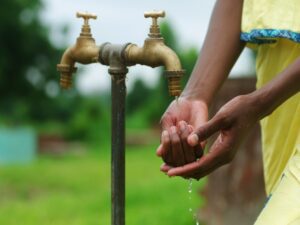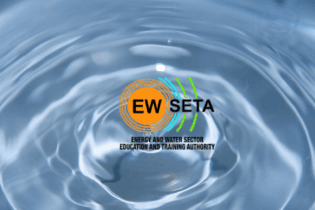South Africa is aiming to ensure clean water and sanitation for all by 2030, and SRK is working with key role players to find the most meaningful ways of measuring our progress.
In a paper at the recent Water Institute of Southern Africa (WISA) conference, SRK water experts described the project being conducted for the Department of Water and Sanitation (DWS), through the Water Research Commission (WRC). The context for this work is the country’s commitment to meeting the United Nation’s 17 Sustainable Development Goals (SDGs) by 2030, according to SRK principal hydrologist Dr Simon Lorentz. “This includes eight targets under SDG 6, which focuses on clean water and sanitation,” said Lorentz. “SRK is engaged in reviewing and developing methodologies for monitoring and assessing the country’s progress related to three of these eight targets.” There is also an over-arching task to review various SDG standards and documentation, where SRK is also involved. He explained the UN had developed indicators for SDG signatory countries to use as a basis for tracking their performance – but that these indicators needed to be adapted to suit each country’s local needs and conditions. “While South Africa has developed methodologies to localise indicators, some of the indicators are still not being measured in a meaningful way that shows and drives progress against the SDG targets,” he said. “For some of these indicators, an assessment – and potentially a revision – of the methodologies is required. Other indicators require new methodologies to be developed. In addition, several new indicators are required, with a solid founding methodology.” SDG water targets SRK’s work focuses on SDG targets 6.6, 6.3 and 6.B. Target 6.6 aims to halt the degradation and destruction of water-related ecosystems, and to assist in recovering those already degraded. Target 6.3 seeks to improve ambient water quality, which is essential to protecting both ecosystem health and human health. This aims to eliminate, minimise and significantly reduce different streams of pollution into water bodies. Finally, target 6.B relates to the greater participation of local communities in water and sanitation planning and management. “It is heartening to see that South Africa is moving quickly and proactively towards clarifying how we measure our progress in meeting the water-related goals,” said Lindsay Shand, associate partner and principal environmental geologist.Shand noted that the country’s monitoring of and performance against the SDG 6 indicators has shown consistent uptake of policies and actions developed for water and sanitation – although there was still further work underway.
“A review of South Africa’s performance against SDG 6 has revealed that baseline data is available for some indicators, and progress tracking is underway,” she said. “Data continuity is challenging for some indicators, as there needs to be consistent tracking of indicators.” SRK also proposed improvements and new indicators where it identified shortfalls and outlined new data sources for some indicators. Water Stewardship In another presentation at the WISA conference, Shand discussed a paper co-written by colleague Fiona Sutton, a principal consultant at SRK on water stewardship as a sustainable response to climate change. Given the limited immediate means available to lessen the effect of climatic changes, they argued that economies and societies needed to build resilience and sustainability into daily life. “Water stewardship helps us to understand the fundamental aspects of water management,” said Shand. “This includes water governance – which relates to responsibility and accountability – and water balance, which focuses on water quantities over a fixed period.” Other key aspects are; water quality; the location and spatial extent of water sources, water use and discharge; identification of important water-related areas; and safe water, sanitation, and hygiene. According to the Alliance for Water Stewardship, the term is best defined as the use of water in ways that are socially equitable, environmentally sustainable, and economically beneficial. Collaboration “Many of the systemic water risks facing businesses cannot be adequately solved through company operational measures,” she said. “An effective response to these risks, therefore, involves the acceptance of appropriate stewardship, where companies work collaboratively with other partners to manage shared water challenges.” Shand noted that the interest in this topic at WISA, and the questions posed at the presentation, suggested that the concept of water stewardship was still gaining traction in southern Africa. However, there was enthusiasm about how its application could promote the provision of safe water and sanitation across the country and region.






